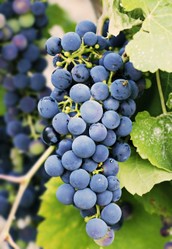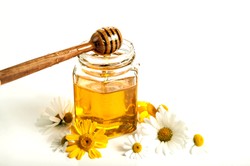Everyone is entitled to a weakness, and as long as it harms no one, that's fine! I have never smoked or taken drugs, illegal or otherwise, I hardly gamble,but I do love my food and drink. So a book that gives me a comprehensive account of the various intoxicating beverages that make the human condition bearable was bound to meet my approval. I purchased this book partly with my payment from Amazon Associates, a long awaited reimbursement for writing on Wizzley, and this added to my sense of satisfaction.
The book is quite comprehensive, and it is divided into several sections, beginning with plants that are brewed or distilled into beer, wine or spirits. Amy Stewart has done thorough research into these plants and leaves none out; and this makes the book very informative for anyone who wants to widen their taste buds beyond the constraints of their cultural limitations, besides its constituting a valuable research resource for scholars. The material is alphabetically arranged for ease of reference. A section on strange brews, such as cashew nut apple and date palm wine, which is not made by fermenting dates, but from the sap, adds quite a degree of interest to the book.
The author goes on to deal with flavourings, such as flowers, herbs, spices and fruit, then proceeds to a section on trees, where she deals for example, with substances derived from the American and Canadian favourite, maple and the delicacy of birch wine and beer. The latter is hardly known in Britain, but birch wine is a lovely drink, I can vouch for that, as I sampled it in a woodland restaurant in the Scotland. Amy Stewart's expert botanical knowledge enables her to draw upon a wide range of trees and other plants, including some that I never knew were the source of drinks, such as the prickly pear and the monkey puzzle tree. Her botanical thoroughness is shown by the fact that very plant is given its botanical name and also assigned to a plant family, a taxonomical category a step higher than a genus.
There is useful information on how the brew is made both in the culture in which it originates and in modern societies. She recounts historical accounts of how the brew/spirit originated and how it was used in society, and you will find various brands that produce the brew identified in the text. She cannot resist giving recipes for cocktails where relevant.
But as an expert on poisonous plants, she knows when to give warnings, and this is particularly useful to anyone considering foraging for flavourings etc, for she shows that some apparently harmless plants can be related to poisonous ones, sometimes toxic even to the point of being deadly.This is expert advice well worth heeding.










 Pilgrimage. A review25 days ago
Pilgrimage. A review25 days ago
 Leo the Fourteenthon 05/09/2025
Leo the Fourteenthon 05/09/2025
 The Melsonby Hoardon 03/25/2025
The Melsonby Hoardon 03/25/2025




Comments
A car dropping from the sky would happen one day if we had flying cars, but it could also be true of drones.
Thank you for your comment below in answer to my previous observation and question.
Drone and remote technology acts sometimes as substitute for, sometimes as supplement to human-powered, old-fashioned inspections.
The latter appeals to me as people-friendly in its job opportunities even as the former associates with less danger from human contact with poisonous animals and poisonous plants.
The Florida canopy-cover project is so fascinating and so nicely done that it undoubtedly motivates other states to manage likewise.
In a somewhat related direction, because of its aerial-technology aspects, might you have come across Elon Musk's humorous comment against flying cars as another thing to drop from the skies and hit someone on the head? '-D Might that be true of drones in their down side? ;-D
I know ofnnonsimilarnprojects in Britain
Thank you for your comment below in answer to my previous observation and question.
The Colorado-based business PlanIt Geo availabilizes its webinars for International Society of Arboriculture (ISA) Continuing Education Units (CEUs). A recent webinar from last month dealt with Florida as the first Unitedstatesian state to draw to close a complete center-coastlines, east-west, north-south, panhandle-tip canopy-cover inventory by drone and remote technology.
Have you heard of any similar ambitions for the British Isles?
Drones are used, but whether used enough I cannot say.
The computer crashed before I communicated another component of my comment below.
Private-property trees fallen onto or hanging over public land such as sidewalks and public-domain land such as roadsides from the pavement end to 3 feet (0.9144 meters) inward can be monitored by drones.
Is the British Isles invoking drone and remote-access technology or old-fashioned human power to inspect such potentially dangerous, risky situations as the two indicated above?
Thank you for your comment below in answer to my previous observation and question.
Tree-safety decisions can be made here about trees overhanging or touching public-domain land, such as the 3-foot area from the street pavement lot-ward.
Do British Isles-ers have to make a risky situation of a dangerous-located, dangerous-looking, dangerous-sized tree non-risky if public-domain land, such as roadsides and sidewalks, is affected?
(In the United States, that cooperation is between the landowner and the state Department of Transportation.)
Yes, I think that it hasca potential for danger.
Thank you for your comment below in answer to my previous observation and question.
A monkey puzzle tree bigger than its garden and taller than the associated house must be quite a sight!
Would that be a dangerous situation in branch-breaking strong winds or super-cold weather?
Good to hear from you, Derdriu. Any spirit distilled without a licence is illegal, but no specific Cornish and Welsh spirits fall into this category. Illegal vodka is common.
I haven't read Wicked Plants.
There is a monkey puzzle tree growing in a garden near where I live, but I think it too large for an urban garden.It is taller than the house.